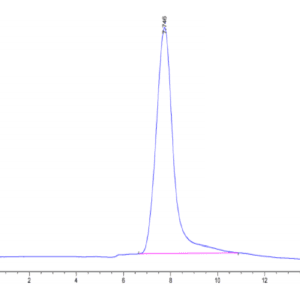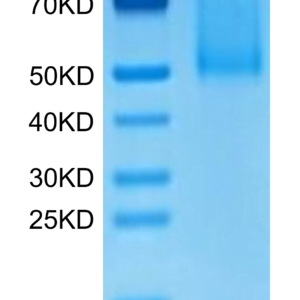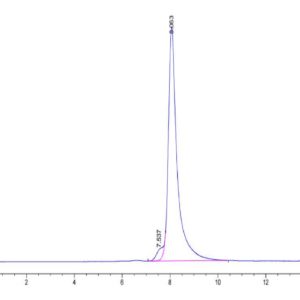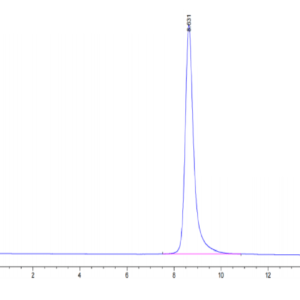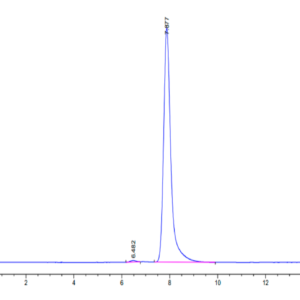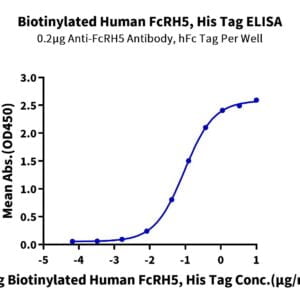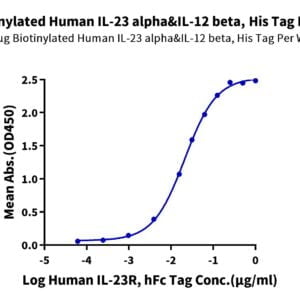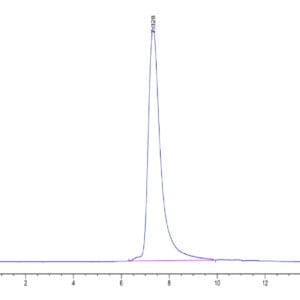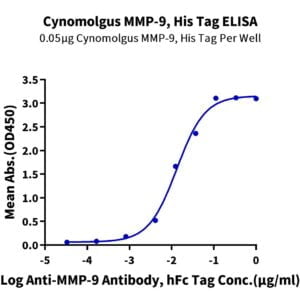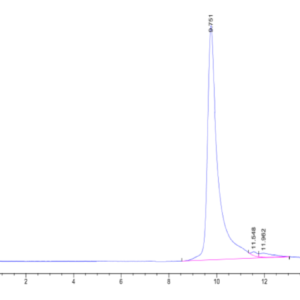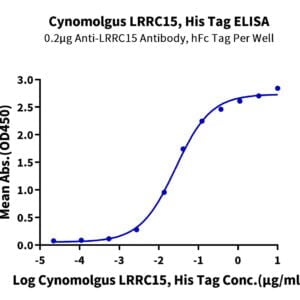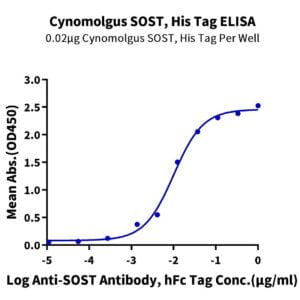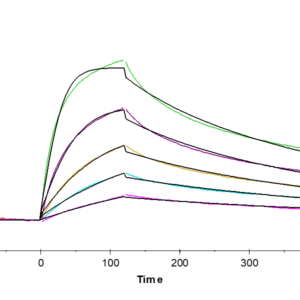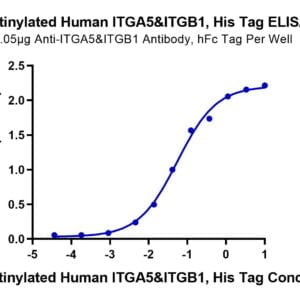| Weight | 1 lbs |
|---|---|
| Dimensions | 9 × 5 × 2 in |
| accession | Q00690 |
| express system | HEK293 |
| product tag | C-His |
| purity | > 95% as determined by Tris-Bis PAGE;> 95% as determined by HPLC |
| background | E-Selectin (Endothelial Leukocyte Adhesion Molecule-1, ELAM-1, CD62E), a member of the Selectin family, is a 107 – 115 kDa cell surface glycoprotein. It is transiently expressed on vascular endothelial cells in response to IL-1 beta and TNF-alpha.E-selectin mediates in the adhesion of blood neutrophils in cytokine-activated endothelium through interaction with SELPLG/PSGL1. May have a role in capillary morphogenesis. |
| molecular weight | The protein has a predicted MW of 59.6 kDa. Due to glycosylation, the protein migrates to 70-110 kDa based on Tris-Bis PAGE result. |
| available size | 100 µg, 500 µg |
| endotoxin | Less than 1EU per μg by the LAL method. |
Mouse E-Selectin/CD62E Protein 3820
$150.00 – $500.00
Summary
- Expression: HEK293
- Pure: Yes (HPLC)
- Amino Acid Range: Trp22-Pro557
Mouse E-Selectin/CD62E Protein 3820
| protein |
|---|
| Size and concentration 100, 500µg and lyophilized |
| Form Lyophilized |
| Storage Instructions Valid for 12 months from date of receipt when stored at -80°C. Recommend to aliquot the protein into smaller quantities for optimal storage. Please minimize freeze-thaw cycles. |
| Storage buffer Shipped at ambient temperature. |
| Purity > 95% as determined by Tris-Bis PAGE |
| target relevance |
|---|
| E-Selectin (Endothelial Leukocyte Adhesion Molecule-1, ELAM-1, CD62E), a member of the Selectin family, is a 107 - 115 kDa cell surface glycoprotein. It is transiently expressed on vascular endothelial cells in response to IL-1 beta and TNF-alpha.E-selectin mediates in the adhesion of blood neutrophils in cytokine-activated endothelium through interaction with SELPLG/PSGL1. May have a role in capillary morphogenesis. |
| Protein names E-selectin (CD62 antigen-like family member E) (Endothelial leukocyte adhesion molecule 1) (ELAM-1) (Leukocyte-endothelial cell adhesion molecule 2) (LECAM2) (CD antigen CD62E) |
| Gene names Sele,Sele Elam-1 |
| Protein family Selectin/LECAM family |
| Mass 10090Da |
| Function Cell-surface glycoprotein having a role in immunoadhesion. Mediates in the adhesion of blood neutrophils in cytokine-activated endothelium through interaction with SELPLG/PSGL1 (PubMed:1375914). May have a role in capillary morphogenesis. |
| Catalytic activity BINDING 101..109; /ligand="a carbohydrate"; /ligand_id="ChEBI:CHEBI:16646"; /evidence="ECO:0000250|UniProtKB:P16581"; BINDING 101; /ligand="Ca(2+)"; /ligand_id="ChEBI:CHEBI:29108"; /evidence="ECO:0000250|UniProtKB:P16581"; BINDING 103; /ligand="Ca(2+)"; /ligand_id="ChEBI:CHEBI:29108"; /evidence="ECO:0000250|UniProtKB:P16581"; BINDING 109; /ligand="Ca(2+)"; /ligand_id="ChEBI:CHEBI:29108"; /evidence="ECO:0000250|UniProtKB:P16581"; BINDING 113..118; /ligand="a carbohydrate"; /ligand_id="ChEBI:CHEBI:16646"; /evidence="ECO:0000250|UniProtKB:P16581"; BINDING 126..128; /ligand="a carbohydrate"; /ligand_id="ChEBI:CHEBI:16646"; /evidence="ECO:0000250|UniProtKB:P16581"; BINDING 126; /ligand="Ca(2+)"; /ligand_id="ChEBI:CHEBI:29108"; /evidence="ECO:0000250|UniProtKB:P16581"; BINDING 127; /ligand="Ca(2+)"; /ligand_id="ChEBI:CHEBI:29108"; /evidence="ECO:0000250|UniProtKB:P16581" |
| Subellular location Cell membrane ; Single-pass type I membrane protein . |
| Structure Interacts with SELPLG/PSGL1 and PODXL2 through the sialyl Lewis X epitope. SELPLG sulfation appears not to be required for this interaction. |
| Target Relevance information above includes information from UniProt accession: Q00690 |
| The UniProt Consortium |
Data
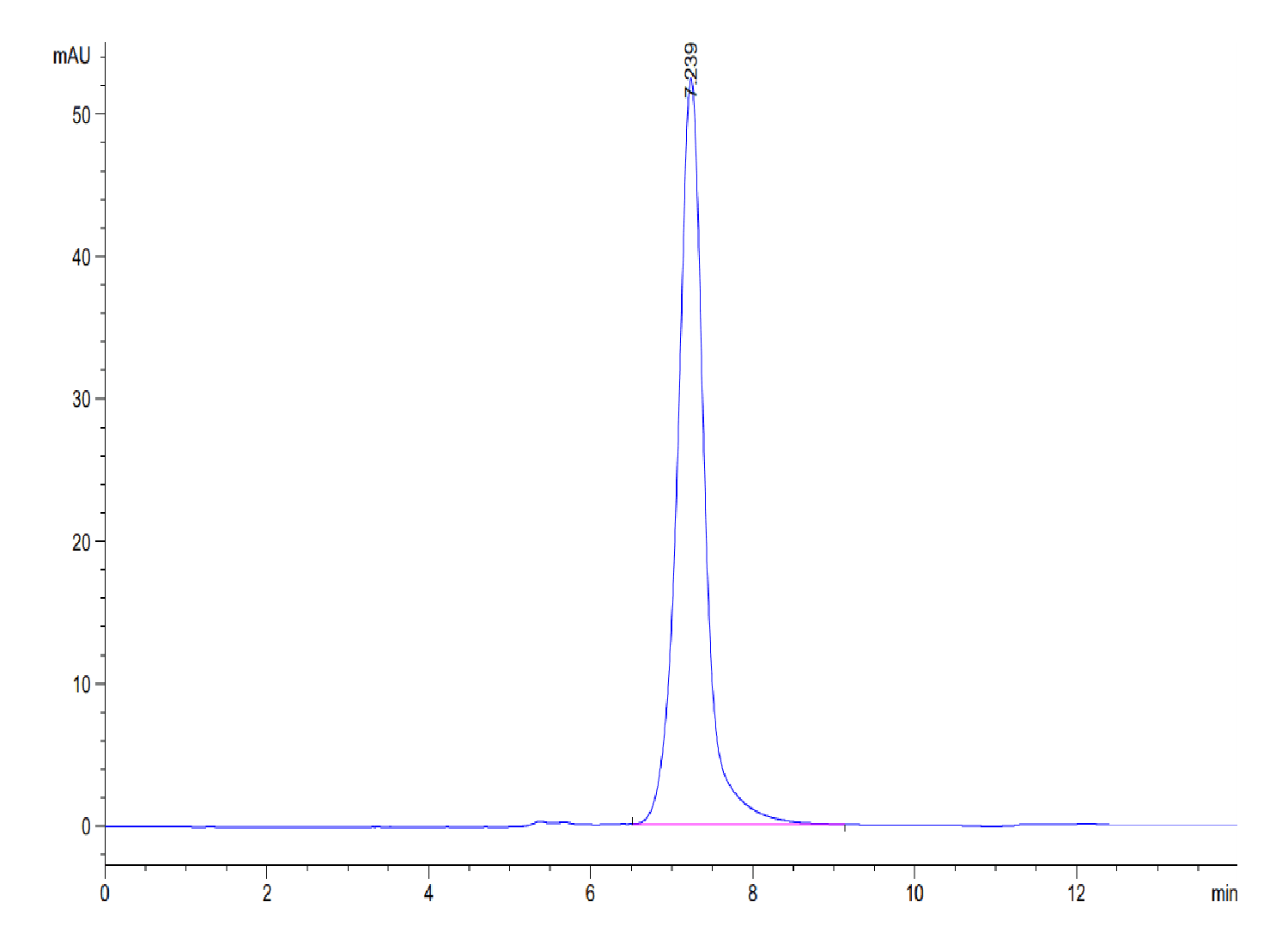 |
| The purity of Mouse E-selectin is greater than 95% as determined by SEC-HPLC. |
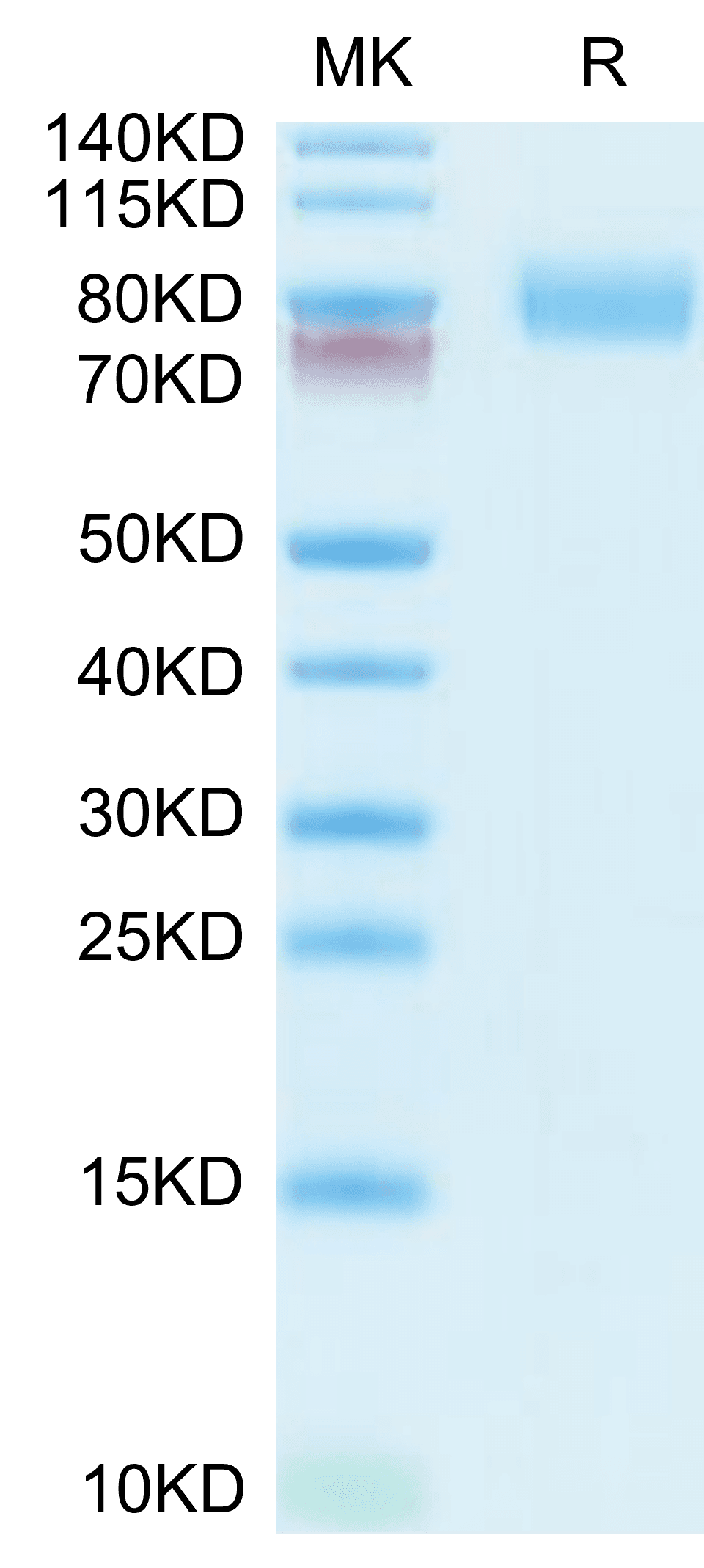 |
| Mouse E-selectin on Tris-Bis PAGE under reduced conditions. The purity is greater than 95%. |
Publications
Publications
| pmid | title | authors | citation |
|---|---|---|---|
| We haven't added any publications to our database yet. | |||
Protocols
| relevant to this product |
|---|
Documents
| # | ||
|---|---|---|
| Please enter your product and batch number here to retrieve product datasheet, SDS, and QC information. | ||
